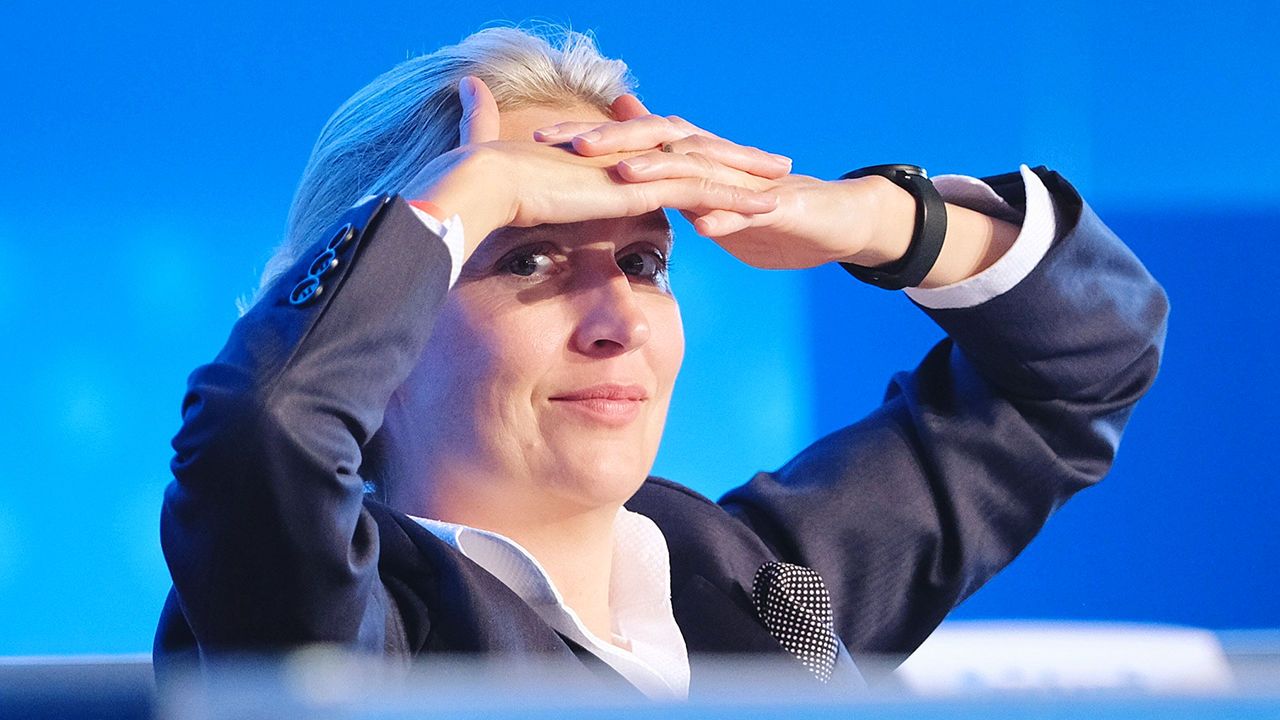- by
- 01 30, 2025
-

-
-
Loading

Loading


FROM HER ADMPADsixth-floor office next to the Bundestag Alice Weidel looks west over an expanse of winter-brown treetops. This is the Tiergarten, Berlin’s most famous park. At its centre rises a 67-metre (220-foot) column celebrating Prussia’s defeat of Denmark in 1864. Glinting in gilded glory at its top strides Victory, this particular version of the winged goddess modelled on the then-crown princess of Prussia, a daughter of Britain’s Queen Victoria.With her pulled-back blonde hair, sharp nose, erect posture and simple, crisp business attire, Ms Weidel does carry the air of a queen-in-waiting. As the co-leader of the Alternative for Germany (f), the furthest-right of the country’s seven main political parties, her influence has been . True, the party, which was launched only in 2013 and represents itself with the colour blue, fields just 78 of the Bundestag’s 736 s. It controls none of Germany’s 16 states, and just three small municipal governments. A majority of Germans say they would never vote for it, and the other leading parties have all sworn to shun it. The Federal Office for Protection of the Constitution, an internal-security agency, has put several local f branches under surveillance for extremism.